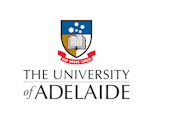Our research group focuses on aquatic waters (freshwater, estuarine and marine) with a strong focus on fish and cephalopods, and environmental issues. The group is part of the Southern Seas Ecology Laboratories in the School of Biological Sciences and the Environment Institute.
We use the hard calcified structures of aquatic organisms (e.g. ear bones or otoliths, shells, teeth and vertebrae or other bones) as innovative tools to understand past environments and biological processes, such as age, growth and movement patterns. We undertake this research using indigenous midden, historical archived and modern day collections. We have specific projects around:
We are also leaders in a major marine initiative, the Spencer Gulf Ecosystem and Development Point LowlyInitiative. Spencer Gulf is one of the most important economic development regions in South Australia. The Initiative sets out to drive sound outcomes for all gulf users and the environment. It is currently supported with nearly 2.5 million dollars of investment from industry. Corporate investment includes BHP Billiton, Santos, Arrium, Alinta, Nyrstar, Centrex, Flinders Ports and the Fisheries Research and Development Corporation. Research partners include SARDI and Flinders University.
Knowledge of how populations are structured is fundamental not only to determining the spatial scale at which stock replenishment occurs, but also for determining the scale of spatial management units. Similarly an understanding of population connectivity underpins population sustainability and resilience. We use a range of approaches (otolith morphology, trace elements and stable isotopes, genomics, acoustic and satellite tagging) to investigate population structure and connectivity at different spatial and temporal scales.
South Australia has the only known breeding aggregation of cephalopods in the world. This iconic aggregation of giant Australian cuttlefish in upper Spencer Gulf provides an ideal opportunity for study and has been the focus on most of our cephalopod research. We have recently focused on global trends in cephalopods and are investigating environmental and fisheries drivers of these trends.
Coastal carbon ecosystems (seagrass, mangrove and saltmarsh) have carbon sequestration rates and storage periods much greater than many terrestrial ecosystems. Degradation and loss of coastal habitats continues, but opportunities exist to use changes in these habitats associated with water quality improvements or restoration activities for carbon storage gains (additionality) and associated co-benefits. Our research focuses on demonstrating additionality and potential for future offsets from coastal ecosystems in South Australian waters.
Experience
-
–presentProfessor , University of Adelaide
- Adelaide, Australia
- Website
- @brongillanders
- Article Feed
- ORCID
- Joined


